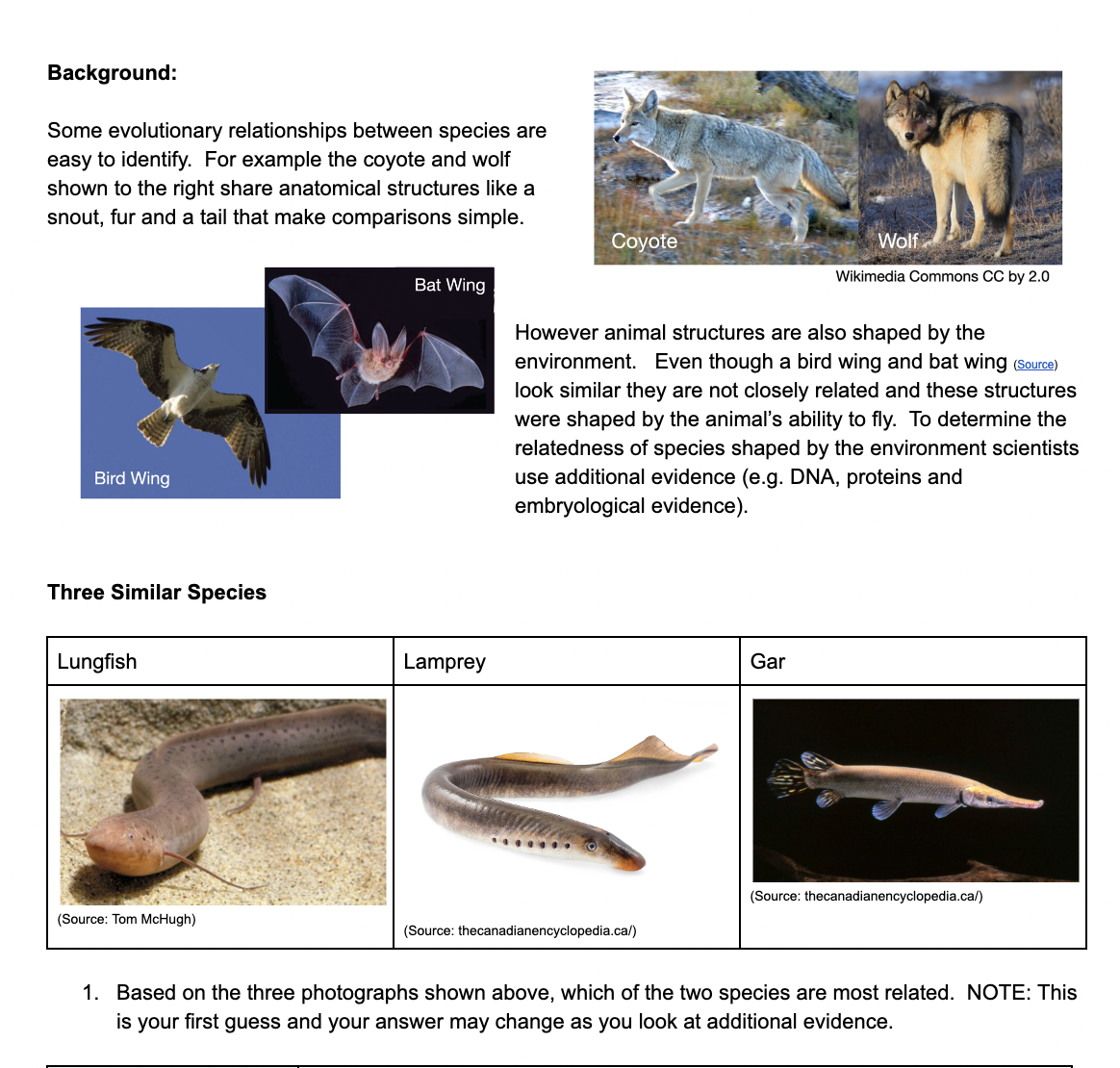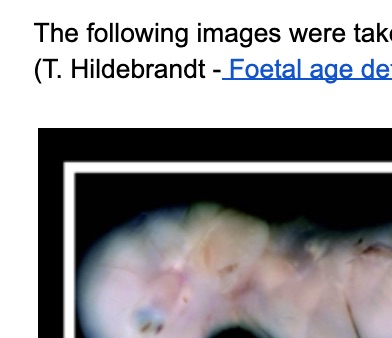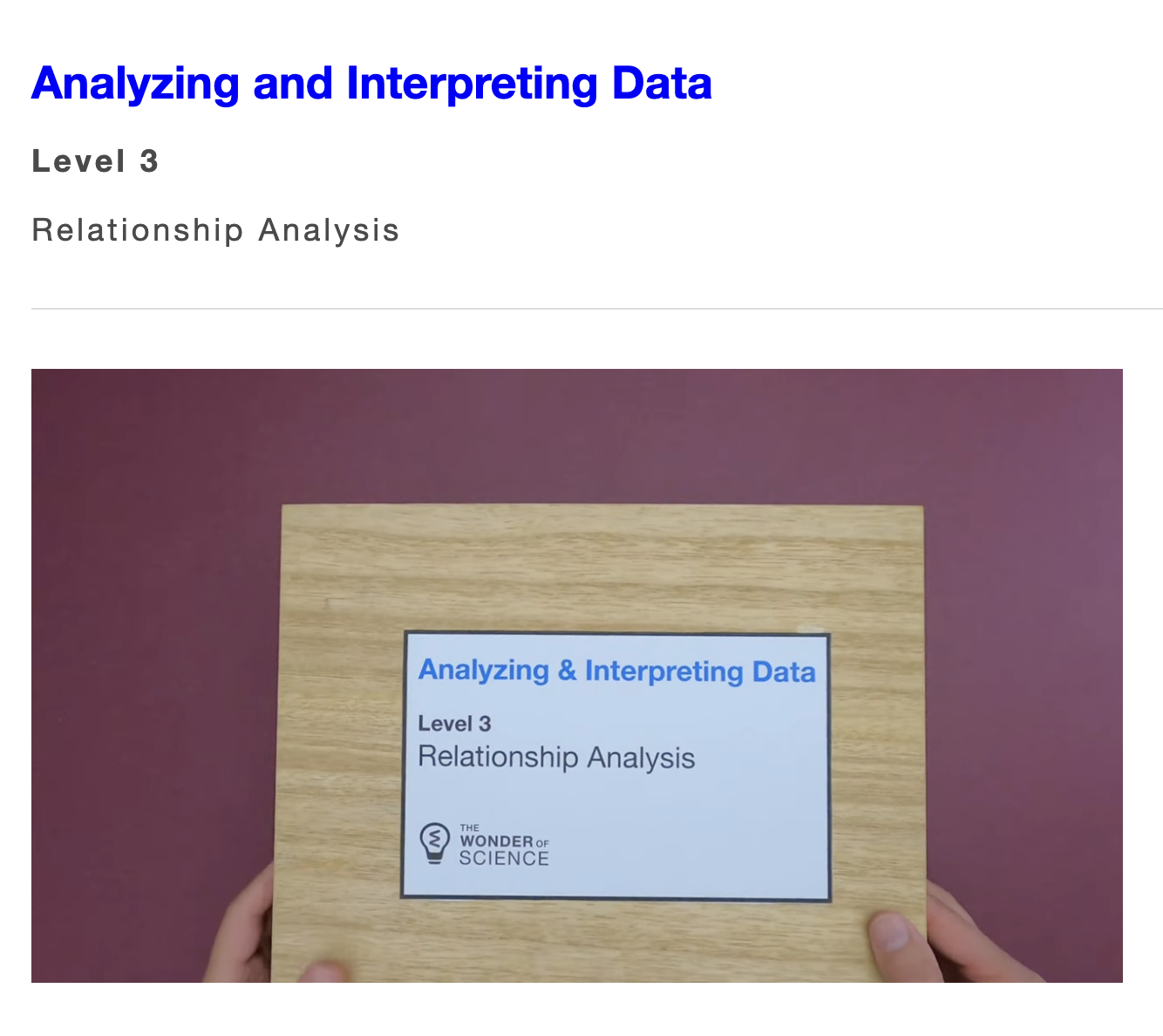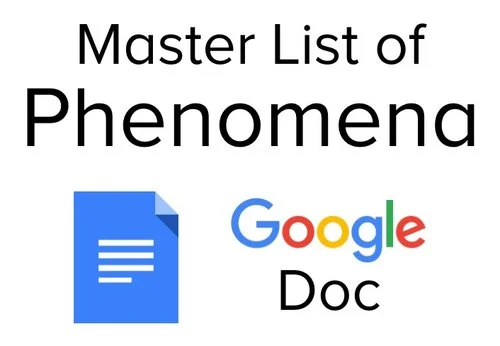MS-LS4-3: Embryological Evidence of Common Ancestry
Analyze displays of pictorial data to compare patterns of similarities in the embryological development across multiple species to identify relationships not evident in the fully formed anatomy.
Clarification Statement: Emphasis is on inferring general patterns of relatedness among embryos of different organisms by comparing the macroscopic appearance of diagrams or pictures.
Assessment Boundary: Assessment of comparisons is limited to gross appearance of anatomical structures in embryological development.
Science Practices
Analyzing and Interpreting Data
Disciplinary Core Ideas
LS4.A: Evidence of Common Ancestry and Diversity
Crosscutting Concepts
Patterns
Assessments
Shared Assessments
The following assessments were shared by teachers implementing the NGSS. Many of these are drafts and should be used accordingly. Feel free to improve these assessments or contribute your own. Learn more here.
Instructional Resources
Mini Lessons
The Wonder of Science Resources
Anchor Charts
Phenomena
Videos
Learning Plans
Storylines
Common Core Connections
ELA/Literacy
RST.6-8.1 - Cite specific textual evidence to support analysis of science and technical texts.
RST.6-8.7 - Integrate quantitative or technical information expressed in words in a text with a version of that information expressed visually (e.g., in a flowchart, diagram, model, graph, or table).
RST.6-8.9 - Compare and contrast the information gained from experiments, simulations, video, or multimedia sources with that gained from reading a text on the same topic.
*Next Generation Science Standards is a registered trademark of Achieve. Neither Achieve nor the lead states and partners that developed the Next Generation Science Standards were involved in the production of this product, and do not endorse it. Visit the official NGSS website.






















